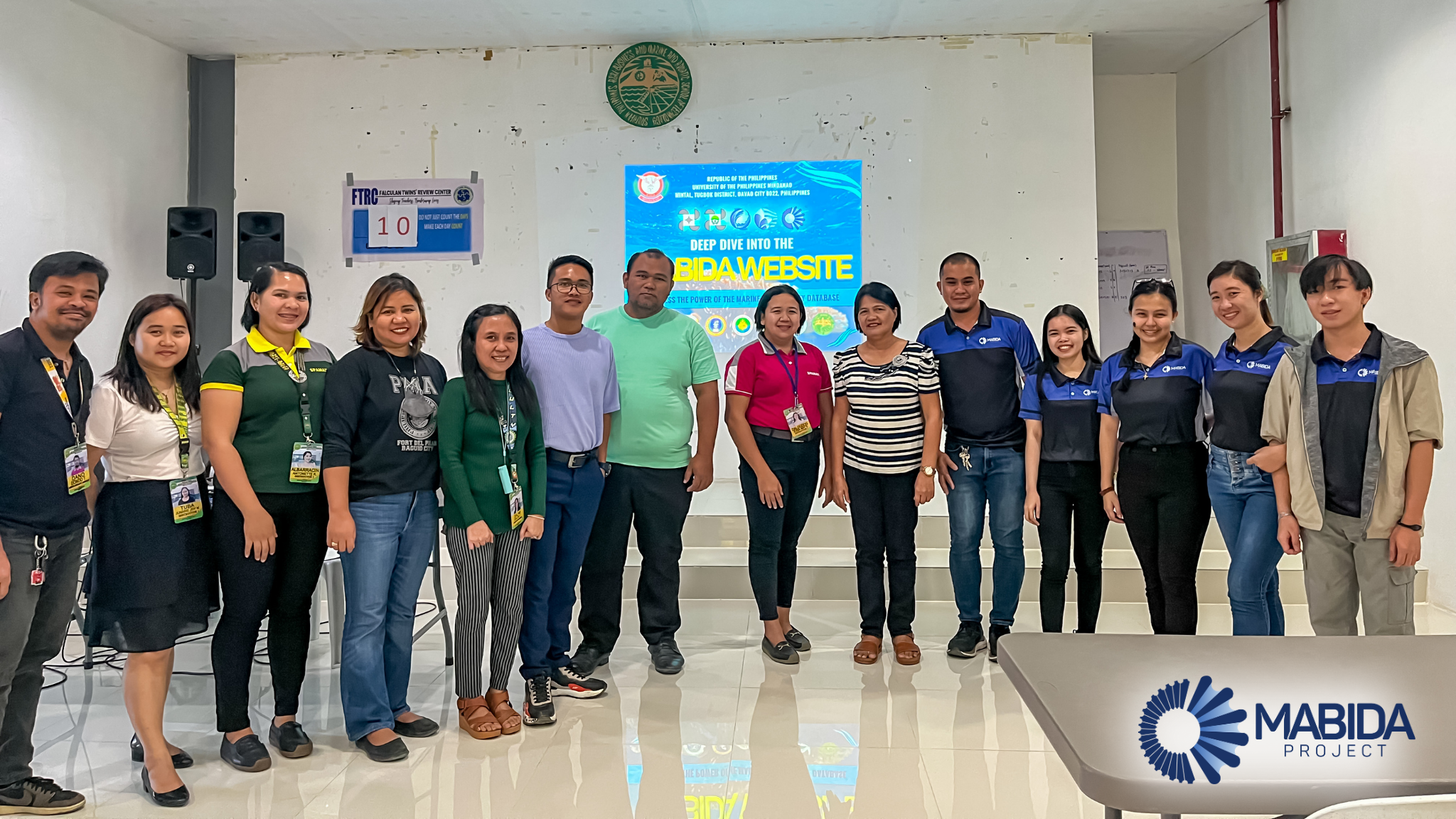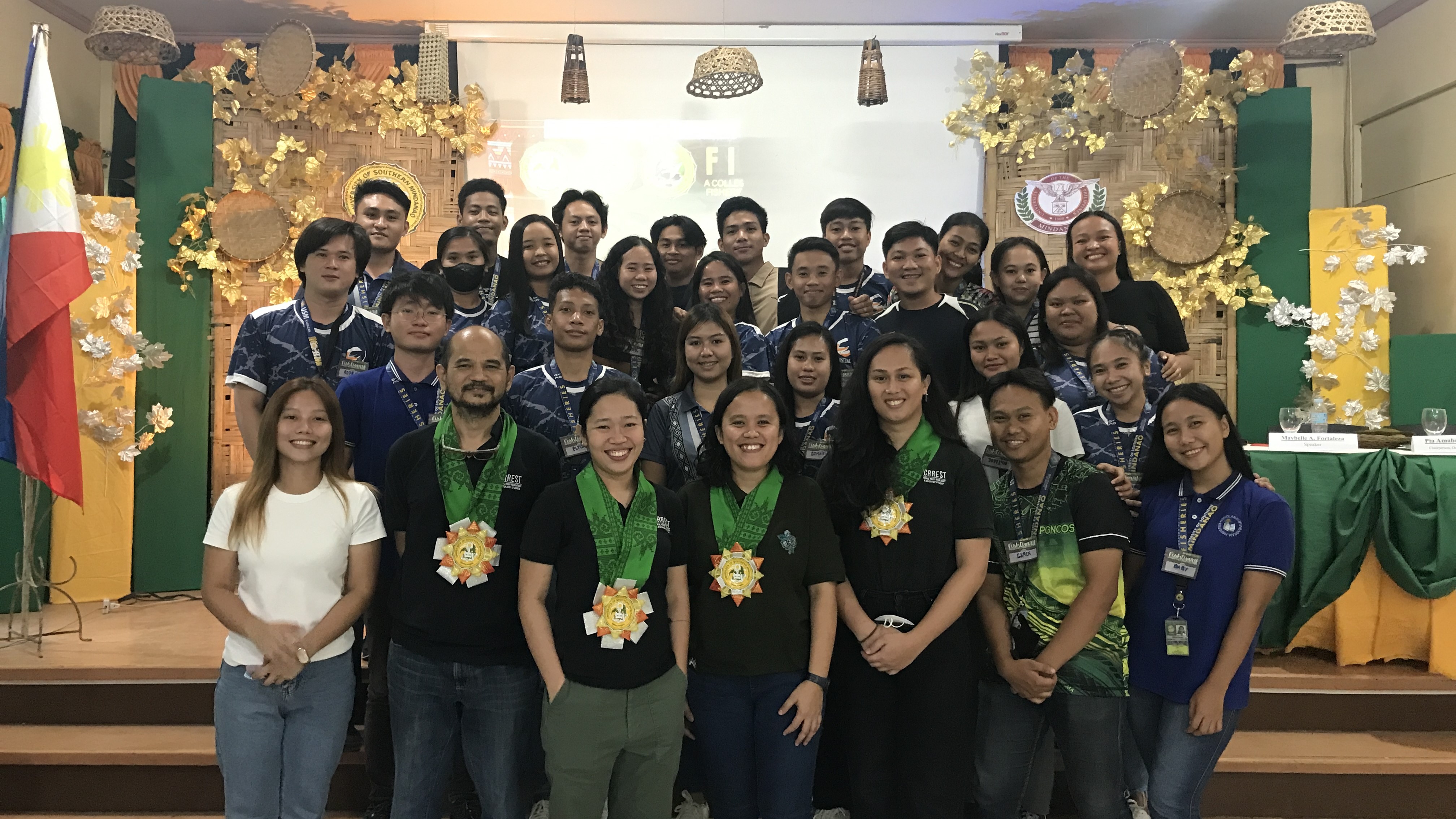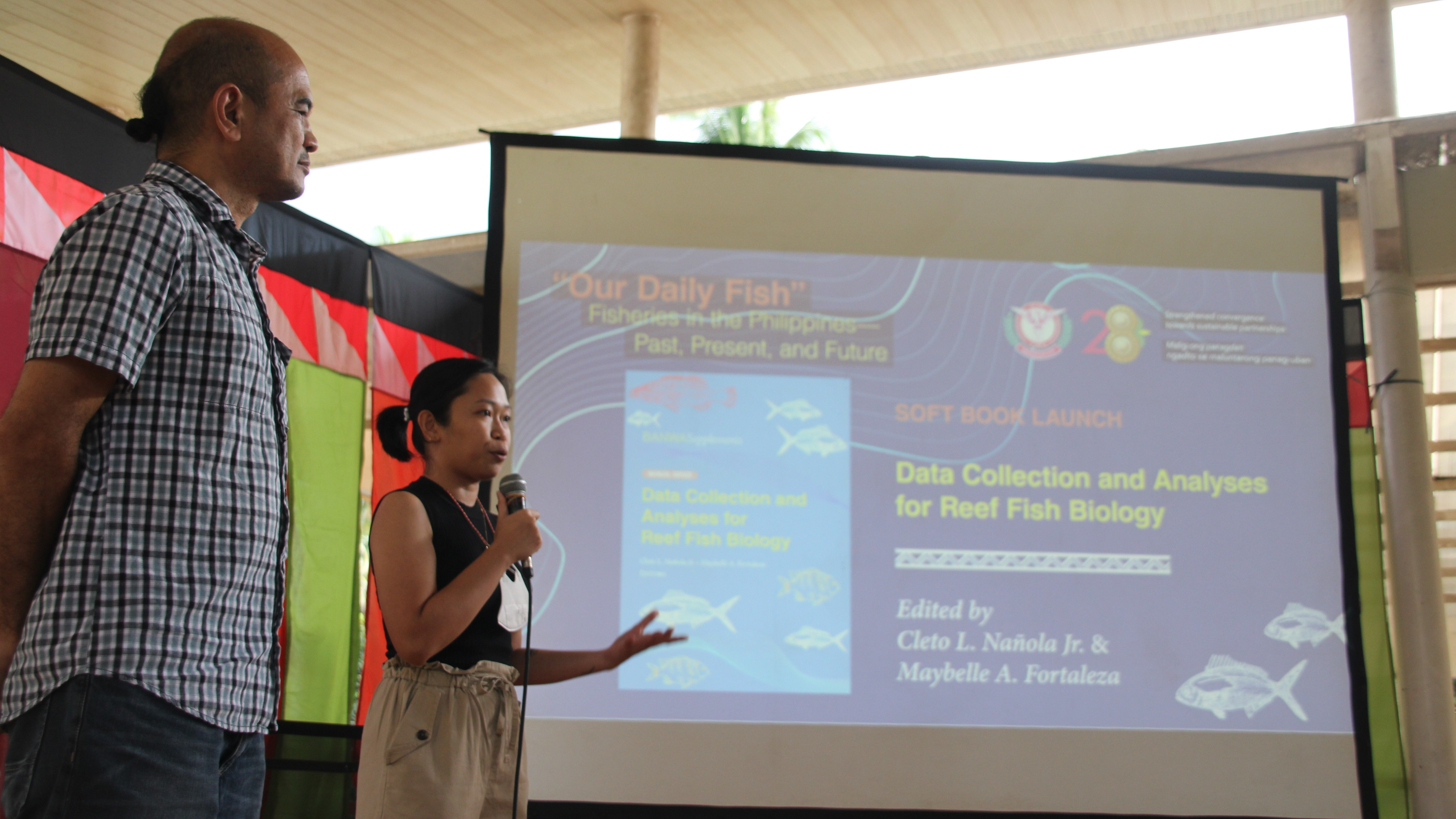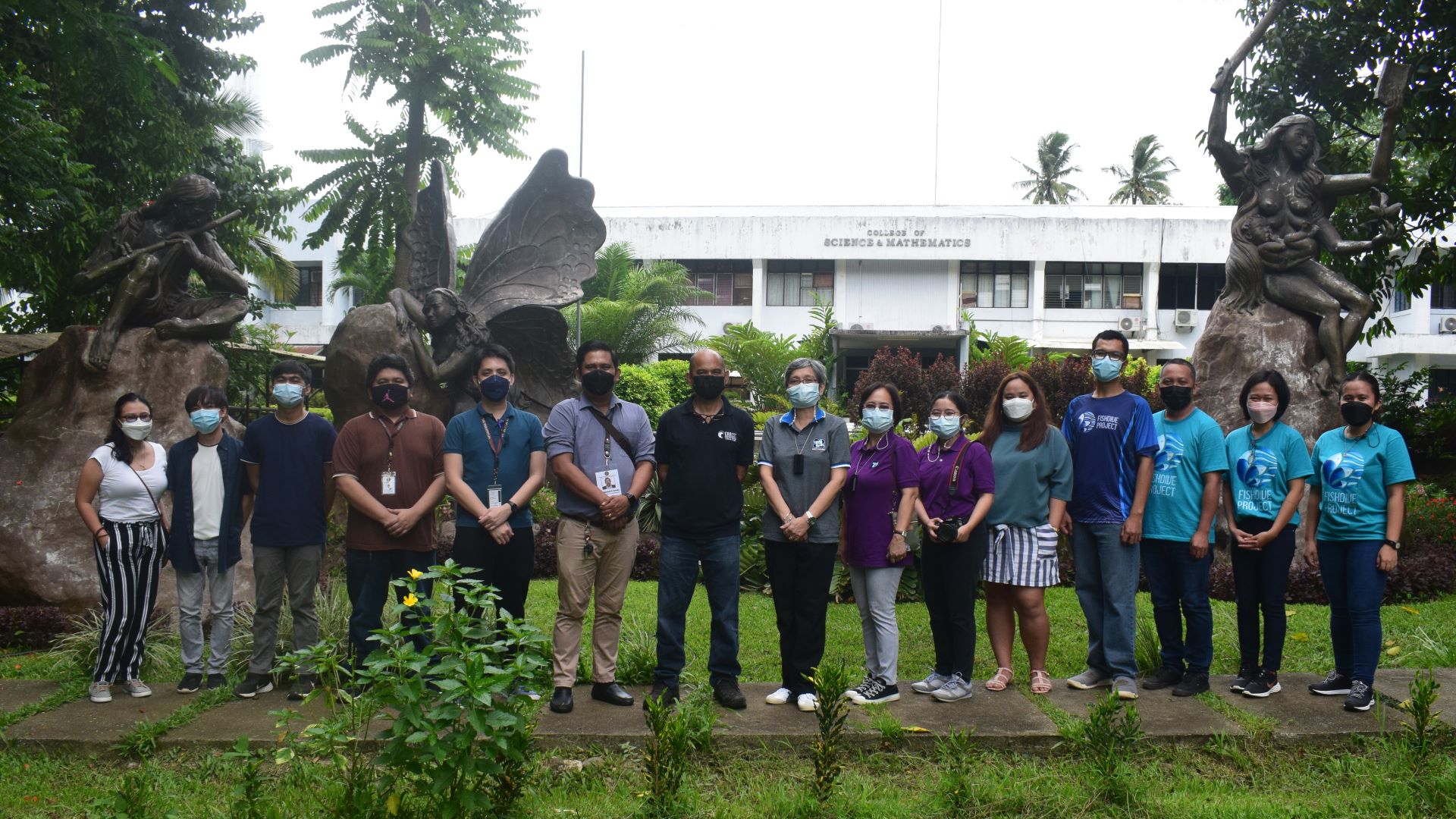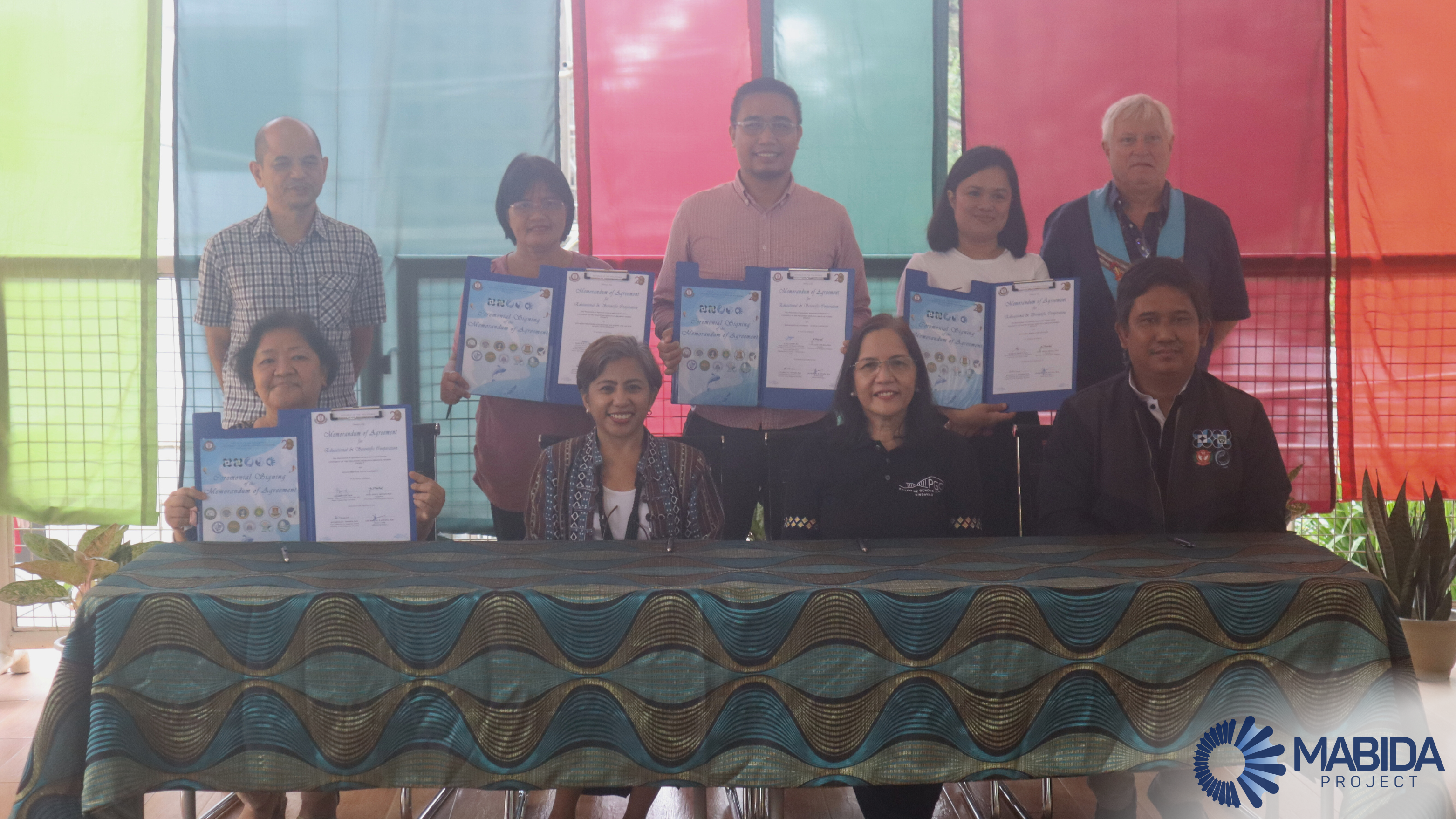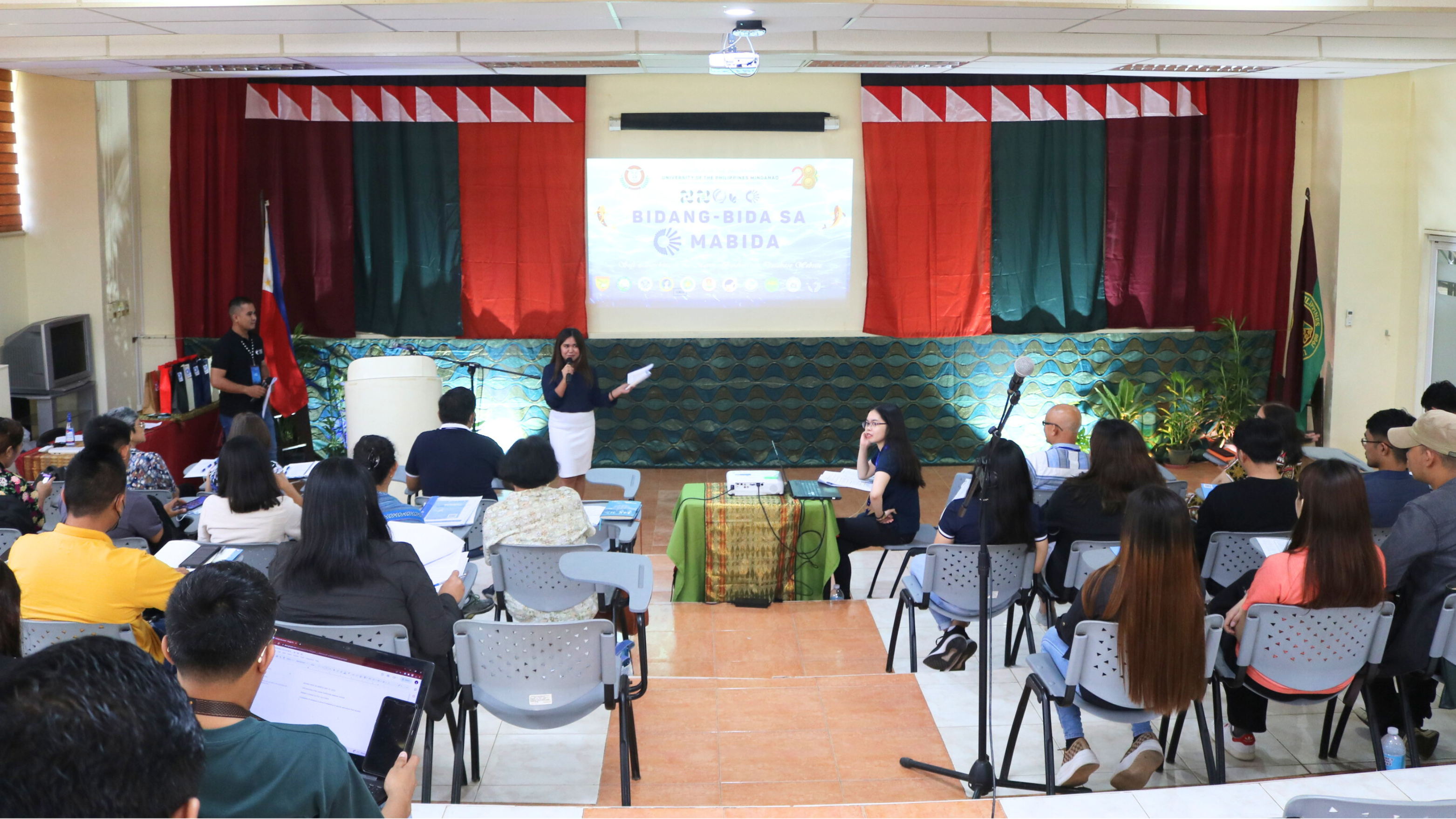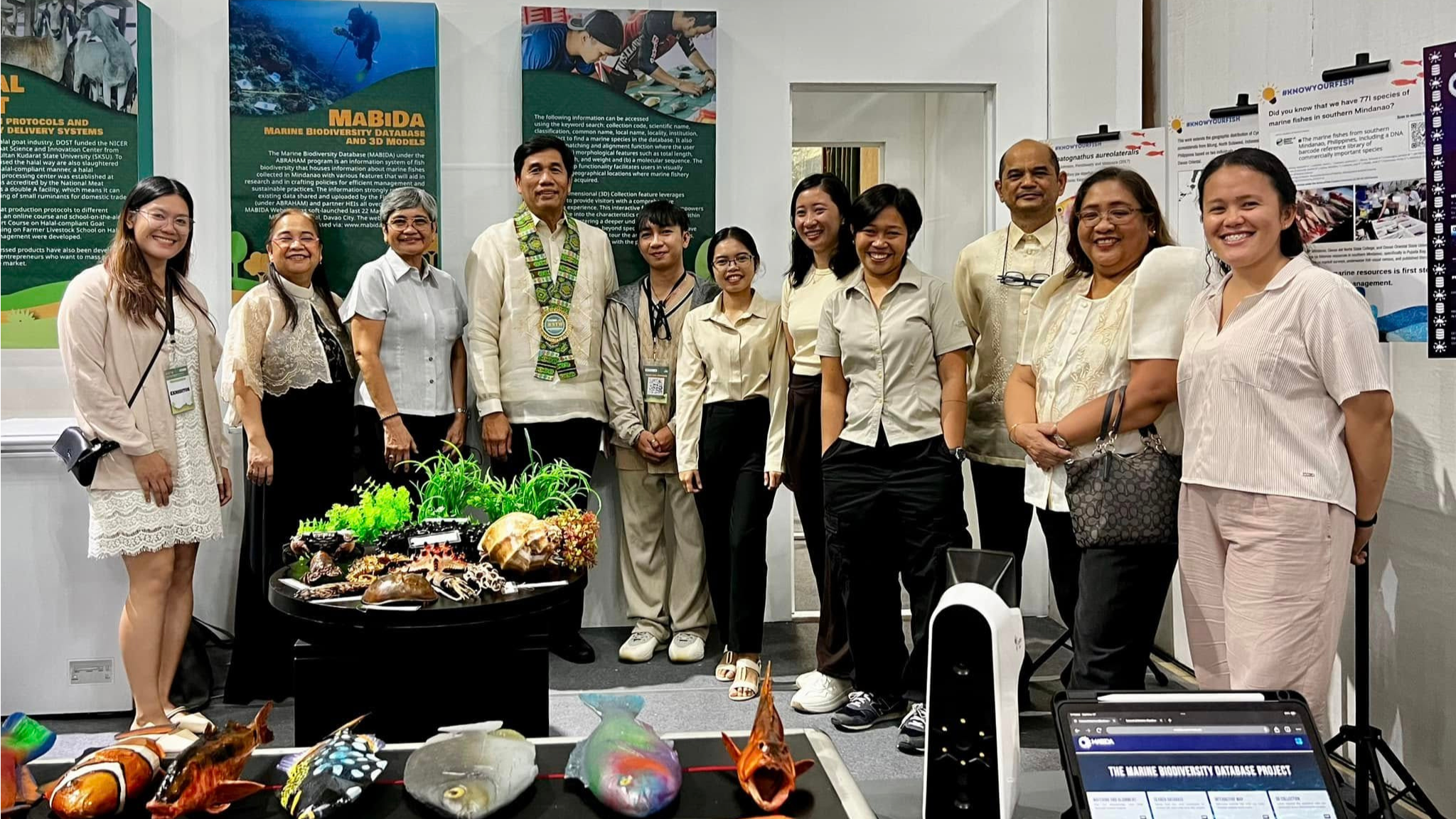
MABIDA Project Highlights Marine Biodiversity Database and 3D Technology at NSTW 2024
Dec. 1, 2024
CAGAYAN DE ORO CITY – The Marine Biodiversity Database (MABIDA) Project participated in the 2024 National Science, Technology, and Innovation Week (NSTW), held from November 27 to December 1 at The Atrium, Limketkai Center, Cagayan de Oro City. The event was centered around the main theme “Siyensya, Teknolohiya at Inobasyon: Kabalikat sa Matatag, Maginhawa, at Panatag na Kinabukasan” and the subtheme “Providing Solutions and Opening Opportunities in the Green Economy.” Organized by the Department of Science and Technology, the NSTW served as a platform for showcasing innovations that focus on human well-being, wealth creation, wealth protection, and sustainability—the core themes of the science and technology exhibits. Alongside the MABIDA Project, the FishDive Project was also present at the exhibit, contributing to the display of marine science and technology under the ABRAHAM Program. The MABIDA Project captivated audiences with its cutting-edge 3D scanning and printing technology, featuring lifelike 3D models of marine species. Visitors had the opportunity to experience 3D scanning firsthand, gaining a deeper understanding of the process and its applications in marine science. Additionally, visitors were introduced to the project’s comprehensive marine database, which catalogs the diverse marine flora and fauna of Mindanao. These innovations highlight the project’s commitment to advancing marine conservation and education while providing tools for the sustainable management of marine biodiversity. Through its exhibit, the MABIDA Project demonstrated how science and technology can drive practical solutions for the green economy, in alignment with the NSTW’s goal of fostering resilience, sustainability, and a brighter future. The exhibit emphasized the transformative potential of marine science and technology, showcasing how these innovations could help tackle environmental challenges and promote sustainable practices in marine ecosystems.
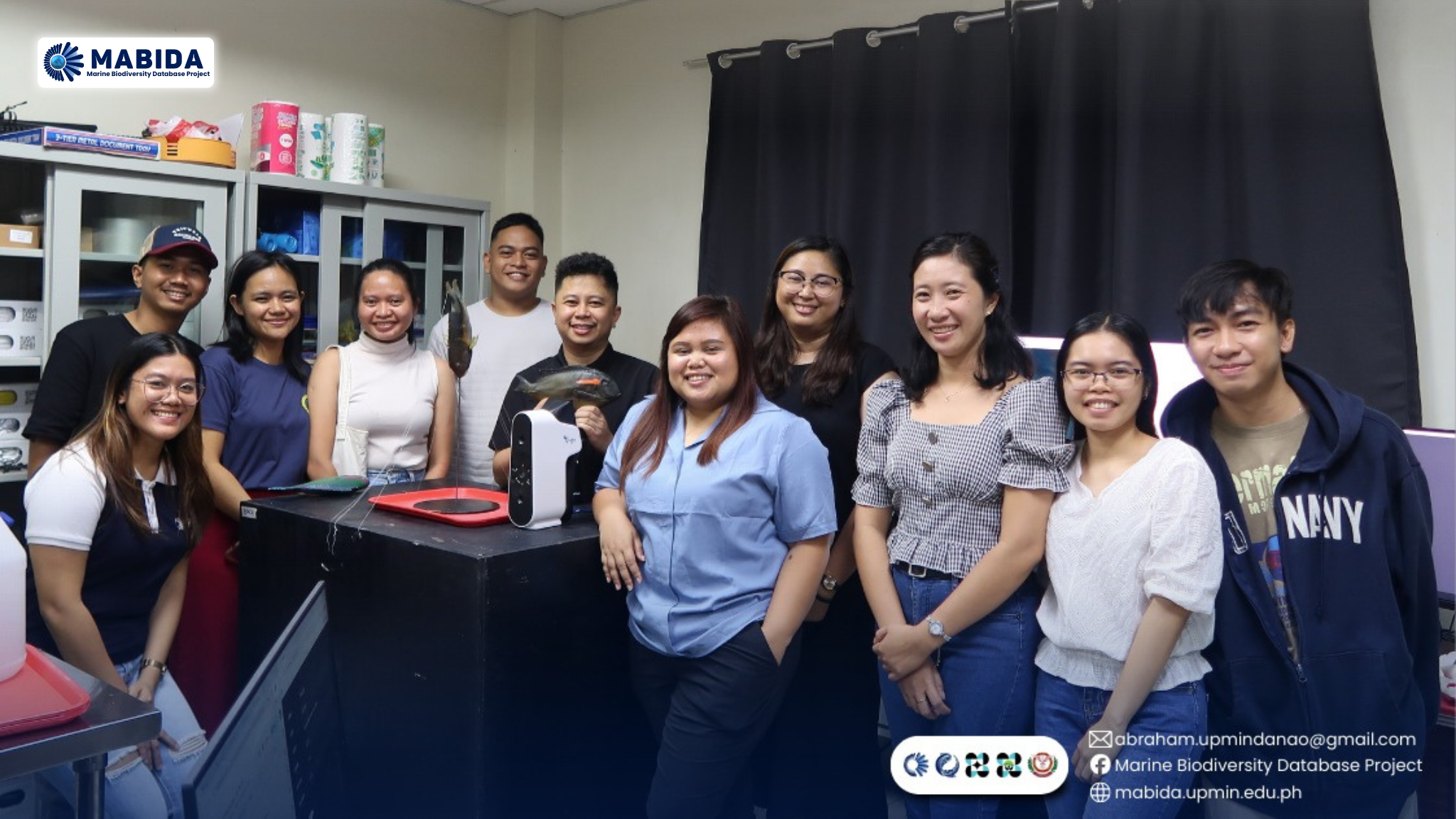
JRMSU and UP IMBIBE Laboratory Explore MABIDA’s Cutting-Edge Marine Research Tools
Oct. 23, 2024
On October 23, 2024, participants from Jose Rizal Memorial State University (JRMSU) and the UP Interactions of Marine Bionts and Benthic Ecosystems Laboratory (IMBIBE Laboratory) of the UP Marine Science Institute visited the MABIDA Project. Following a three-day DNA barcoding training organized by the Coral Reef Resiliency and Ecology Studies Laboratory, the group explored MABIDA’s advanced 3D scanning and printing equipment, gaining insights into our cutting-edge methods for marine biodiversity research. Both groups expressed keen interest in contributing to the MABIDA website to enhance our collective impact. MABIDA looks forward to expanding data contributions through its active and committed collaborators, driving research and innovation forward!
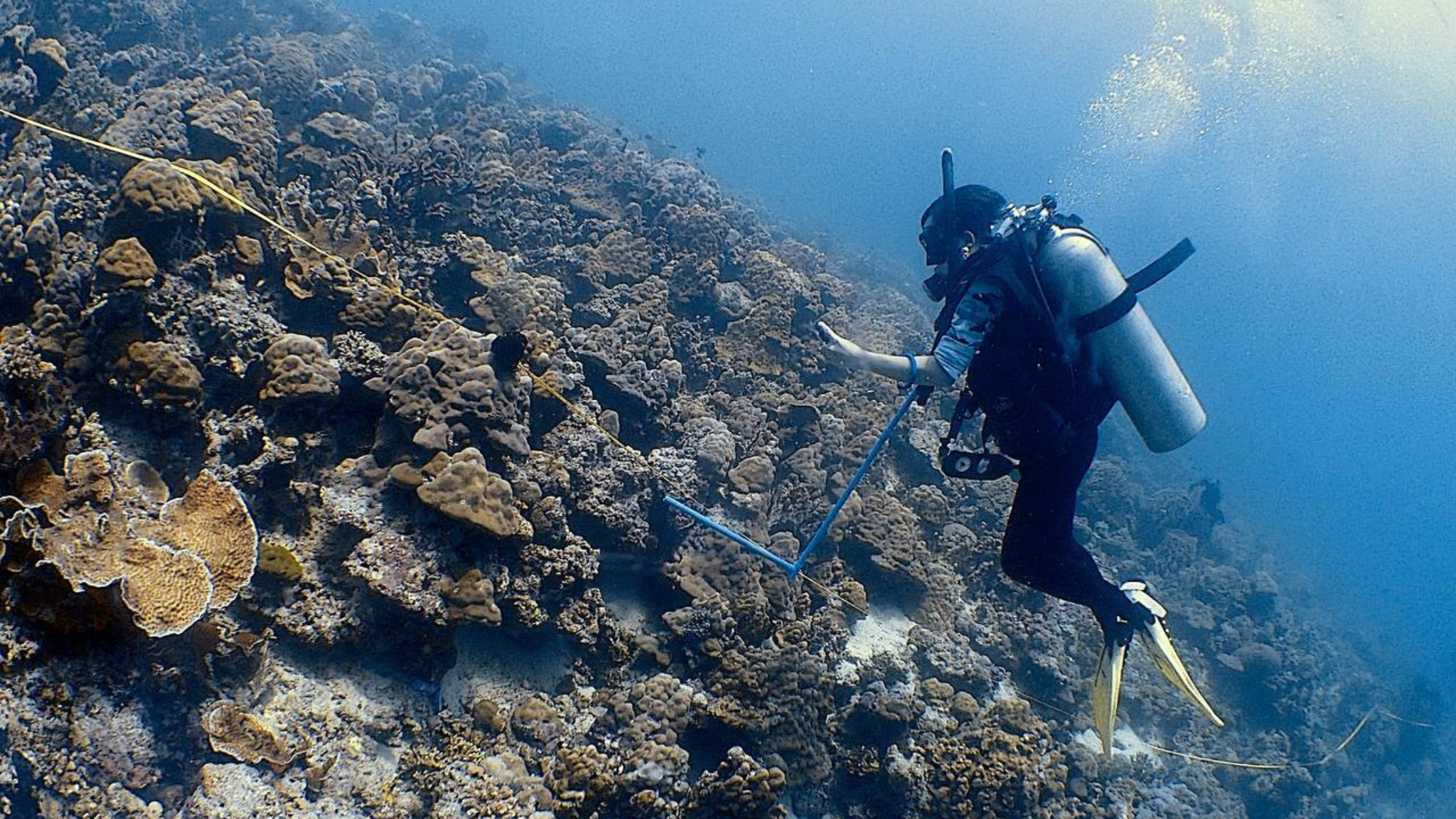
MABIDA and FishDive Teams Advance Marine Conservation Research in Talicud Island MPAs
Sept. 9, 2024
The MABIDA and FishDive Projects have successfully completed another underwater data collection expedition in the Marine Protected Areas (MPAs) of Talicud Island, Island Garden City of Samal, Davao del Norte. Conducted on September 9, 2024, this activity was a key component of the ongoing ABRAHAM Program under the University of the Philippines Mindanao. The primary objective was to gather in-situ data for benthic habitat mapping and fish visual census. This data is essential for assessing the health and biodiversity of the marine ecosystems within these MPAs, helping to inform sustainable management practices. The collaboration between MABIDA and FishDive highlights their shared commitment to marine conservation and scientific research in the region. The successful completion of this expedition marks a significant milestone in their joint efforts to protect and preserve the rich marine biodiversity of Talicud Island.
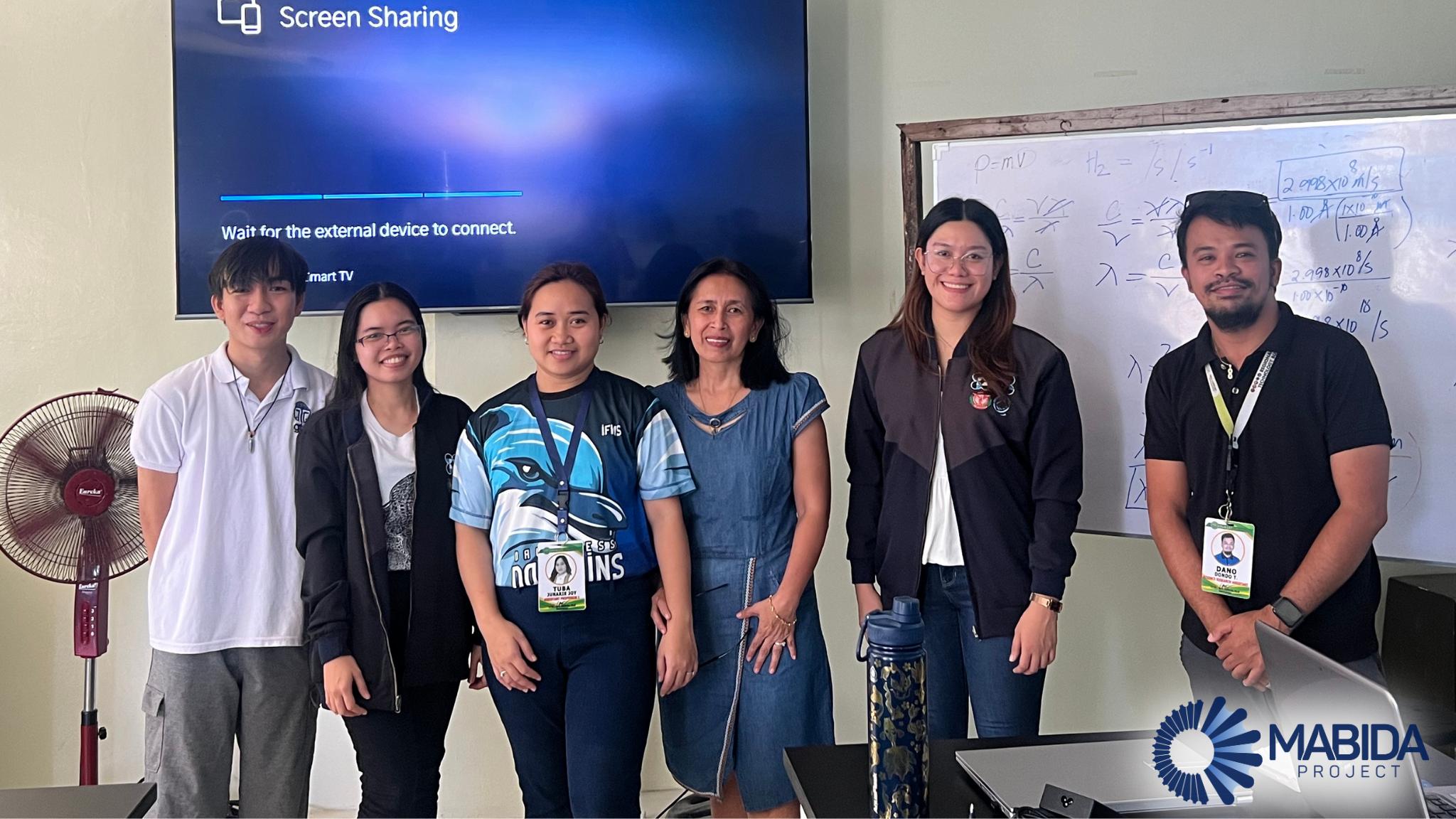
MABIDA Pays a Courtesy Visit to Southern Philippines Agri-Business and Marine and Aquatic School of Technology
Sept. 6, 2024
Malita, Davao Occidental - The MABIDA Project successfully conducted a courtesy visit to the Southern Philippines Agri-Business and Marine and Aquatic School of Technology (SPAMAST) on September 6, 2024. This visit aimed to enhance collaboration between the institutions and gather crucial data for the MABIDA Project’s expanding marine biodiversity database. Key representatives from SPAMAST included Director Grace D. Buencillo of the Research Development and Innovation Office, Dr. Marlyn B. Llameg, Vice President for Academic Affairs, and Asst. Prof. Junarie Joy Tuba-Dano, Research Coordinator. The engagement focused on strengthening the existing partnership between MABIDA and SPAMAST, emphasizing data sharing and collaborative research efforts to support marine conservation and biodiversity initiatives. The purpose of the visit was to engage with SPAMAST and request important data that will help populate the MABIDA Project's database, thereby enhancing ongoing efforts to advance marine biodiversity research and conservation in the Southern Philippines. This collaboration reflects a shared commitment to marine research and the sustainable management of aquatic resources, aligning with national goals for biodiversity conservation and sustainable development.
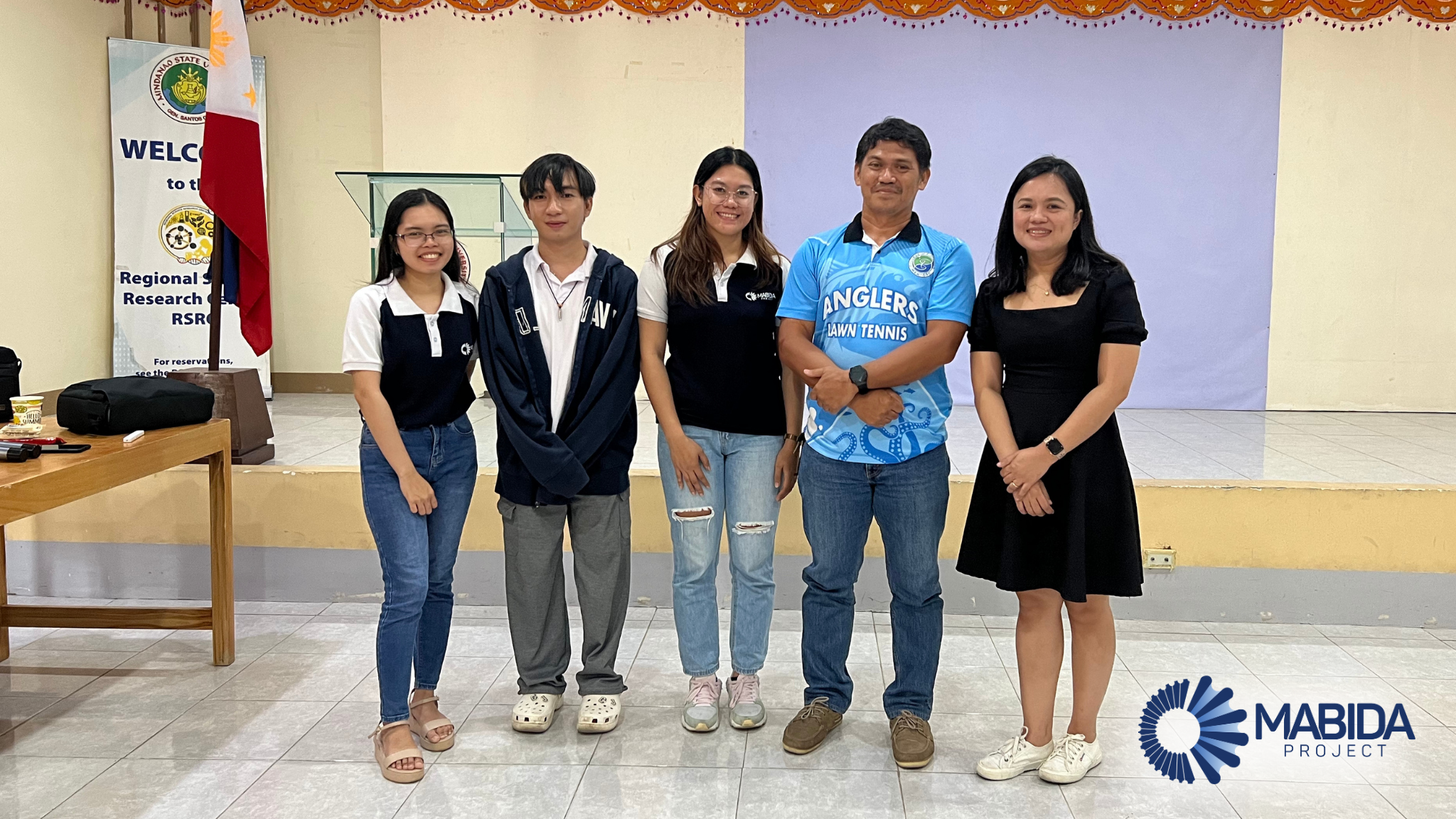
MABIDA Team Visits Mindanao State University-General Santos City
Aug. 28, 2024
On August 28, 2024, the MABIDA Project visited Mindanao State University-General Santos City (MSU-GSC). The visit aimed to strengthen the collaborative partnership between MABIDA and MSU-GSC and to collect available data for incorporation into the MABIDA database. The MSU-GSC was represented by Associate Professor Julius V. Mingoc from the Marine Biology Department and Dr. Liza L. Limpin from the IT and Physics Department. During the visit, the MABIDA team engaged in discussions about data-sharing strategies, focusing on how MSU-GSC could assist in populating the MABIDA database. The teams discussed ways in which MSU-GSC could effectively store and manage their data . The MABIDA team expressed its gratitude to MSU-GSC for their warm welcome and support. The visit was a significant step towards strengthening the collaboration between the two institutions and contributing to the conservation and sustainable management of marine biodiversity in the Mindanao.
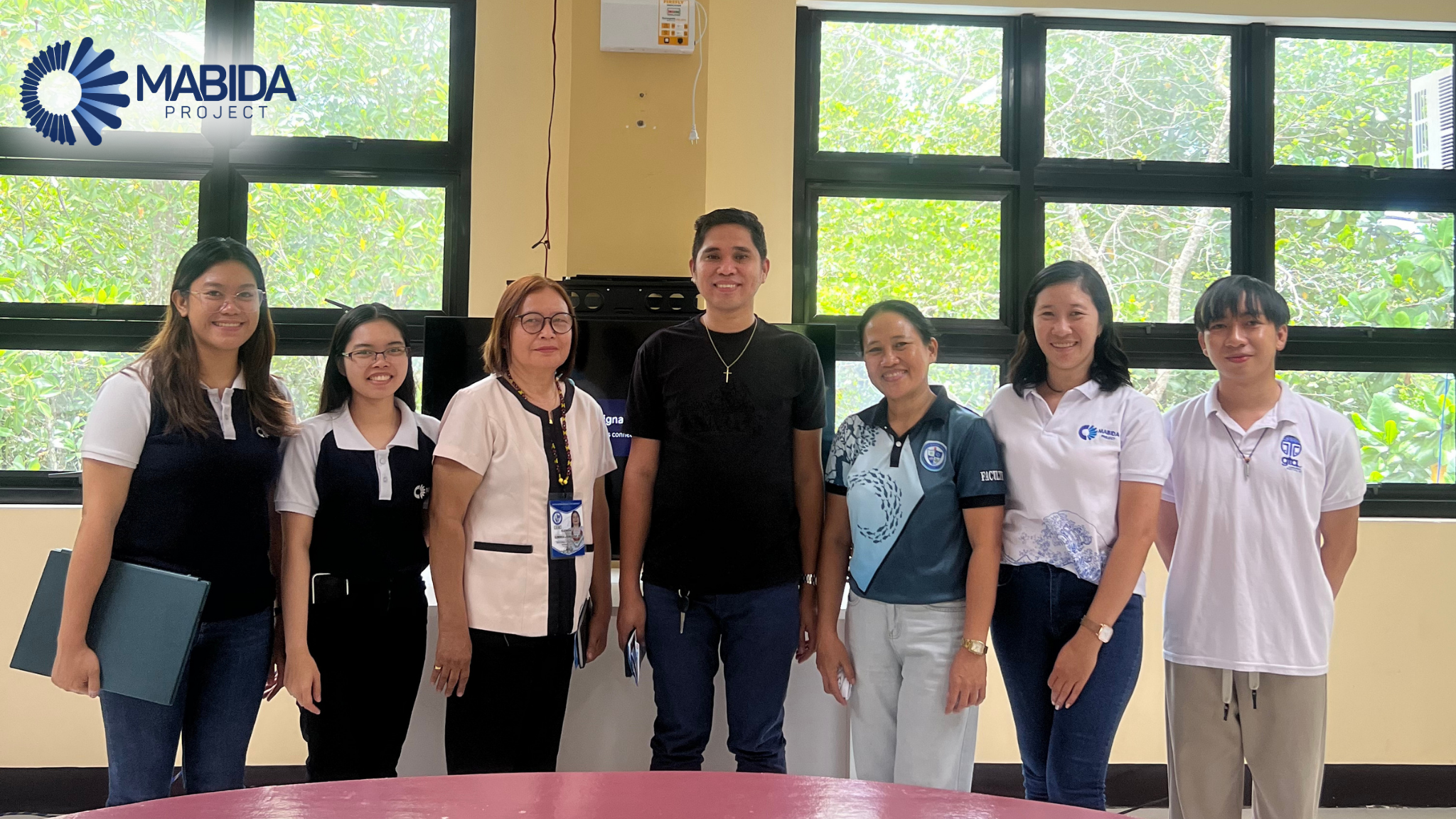
NEMSU and MABIDA Team Explore Collaborative Opportunities for Marine Biodiversity and Data Sharing
Aug. 22, 2024
Lianga, Surigao del Sur — During the visit to Northeastern Mindanao State University (NEMSU) on August 22, 2024, the MABIDA team was warmly welcomed by Professor Amor Rojas-Salinas, Chair of the Marine Biology Program. The meeting focused on exploring potential collaborations and future opportunities to enhance marine research and conservation efforts in the region. NEMSU-Lianga, recognized for its specialized Fisheries and Marine Sciences programs, expressed a strong interest in partnering with the MABIDA project. A key outcome of the discussion was the shared objective of contributing data from Surigao del Sur to the MABIDA platform. Professor Rojas-Salinas highlighted the significance of this initiative, emphasizing that sharing marine biodiversity data from the region is crucial, especially given the current lack of sufficient studies or data. This partnership presents a valuable opportunity to elevate the recognition of Surigao del Sur's marine ecosystems, which are rich yet under-researched. The collaboration with MABIDA aims not only to spotlight the area's biodiversity but also to underscore the role of innovation and technology in facilitating access to essential data. By making marine data more accessible, the partnership seeks to inspire further research and conservation initiatives, benefiting both local and international scientific communities.
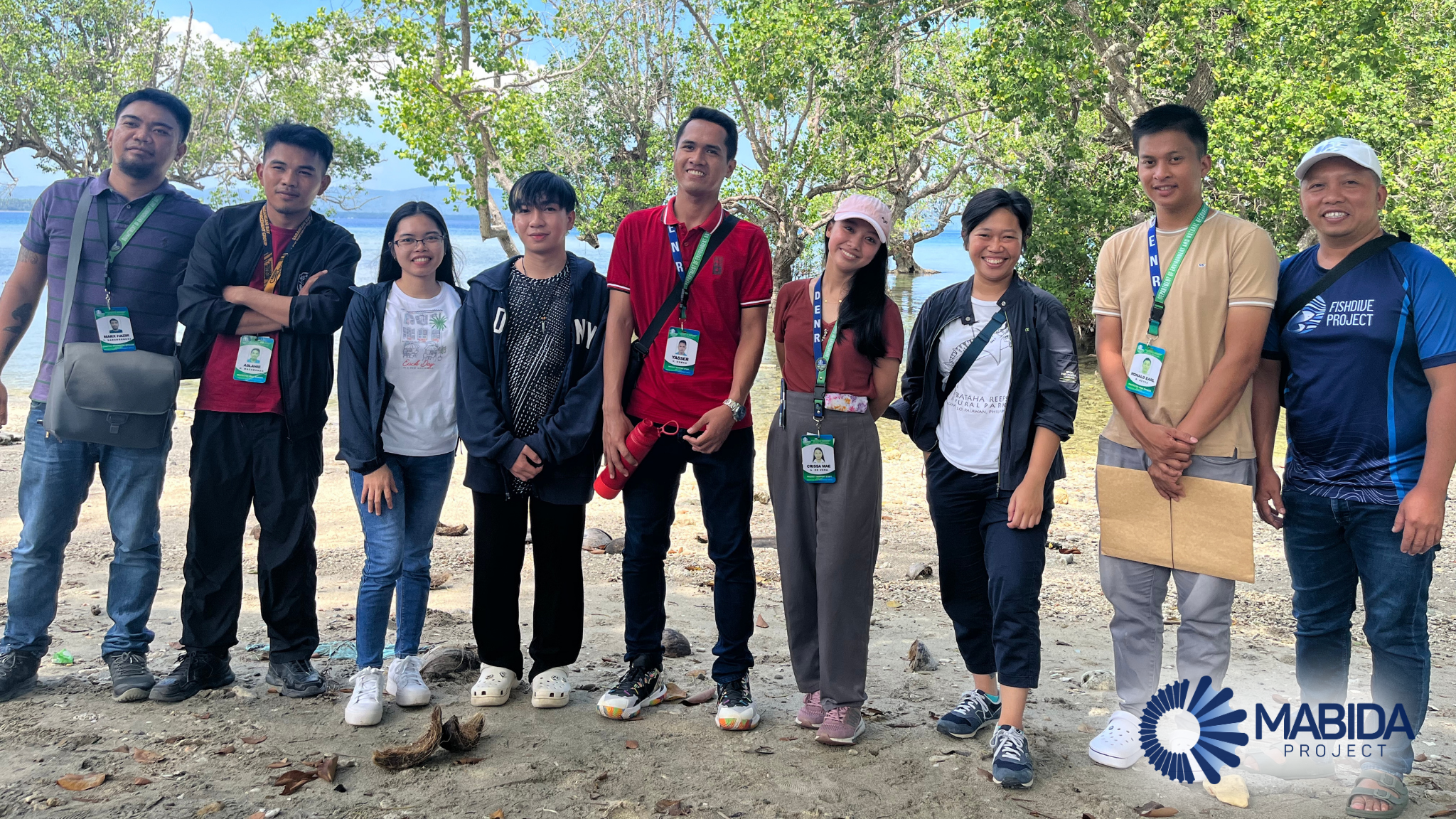
Aerial Surveys Conducted in Sarangani Bay Protected Seascape
Aug. 1, 2024
Last July 29-31, Mr. Norjan Charls Cabanalan and Ms Irene Faith Makinano of the MABIDA Project assisted the Coral Reef Resiliency and Ecology Studies Laboratory in conducting aerial surveys in selected Marine Protected Areas within Sarangani Bay Protected Seascape. These surveys aimed to map the extent of coastal and marine habitats in the study areas, contributing valuable data for conservation and management efforts. The initiatives were made possible through the support of the DENR Protected Area Management Office of the Sarangani Bay, led by PASu Cirilio A. Lagnason, Jr., and with assistance from Mr. Ronald Earl B. Reyes, Mr. Aslanie Macabando, Mr. Marx Hazir T. Saraboquez, and Ms. Crissa Mae De Vera.

Boosting Marine Research Efforts: JRMSU Participates in MABIDA Capacity-Building Workshop
June 26, 2024
Jose Rizal Memorial State University (JRMSU) recently participated in a one-day capacity-building workshop on the Marine Biodiversity Database (MABIDA), organized by the UP Mindanao ABRAHAM MABIDA Project. The event, “Deep Dive into the MABIDA Website,” was held on June 26, 2024, at the CNAHS Audio-Visual Hall, Main Campus, Dapitan City. The workshop aimed to equip JRMSU faculty members, researchers, and students with the necessary skills to effectively navigate and utilize the MABIDA website, a vital tool for managing and accessing marine biodiversity data. University President Dr. Maria Rio A. Naguit and Dr. Junnasir Sakilan, Chair of the BS Biology Program, actively participated in the training sessions, highlighting the importance of this initiative to the university’s ongoing marine research and conservation projects. As an institution situated in an archipelagic region renowned for its rich marine ecosystems, JRMSU recognizes the immense value the MABIDA database brings to marine research and conservation efforts. The knowledge gained during the workshop is expected to bolster JRMSU’s engagement in cutting-edge marine science and further its commitment to using advanced technologies for the conservation of marine ecosystems. This initiative is part of a broader collaborative effort between JRMSU, UP Mindanao, and other partners to strengthen marine biodiversity research across the Philippines. The MABIDA database is poised to become a cornerstone for knowledge-sharing and environmental stewardship, supporting both national and regional conservation efforts.
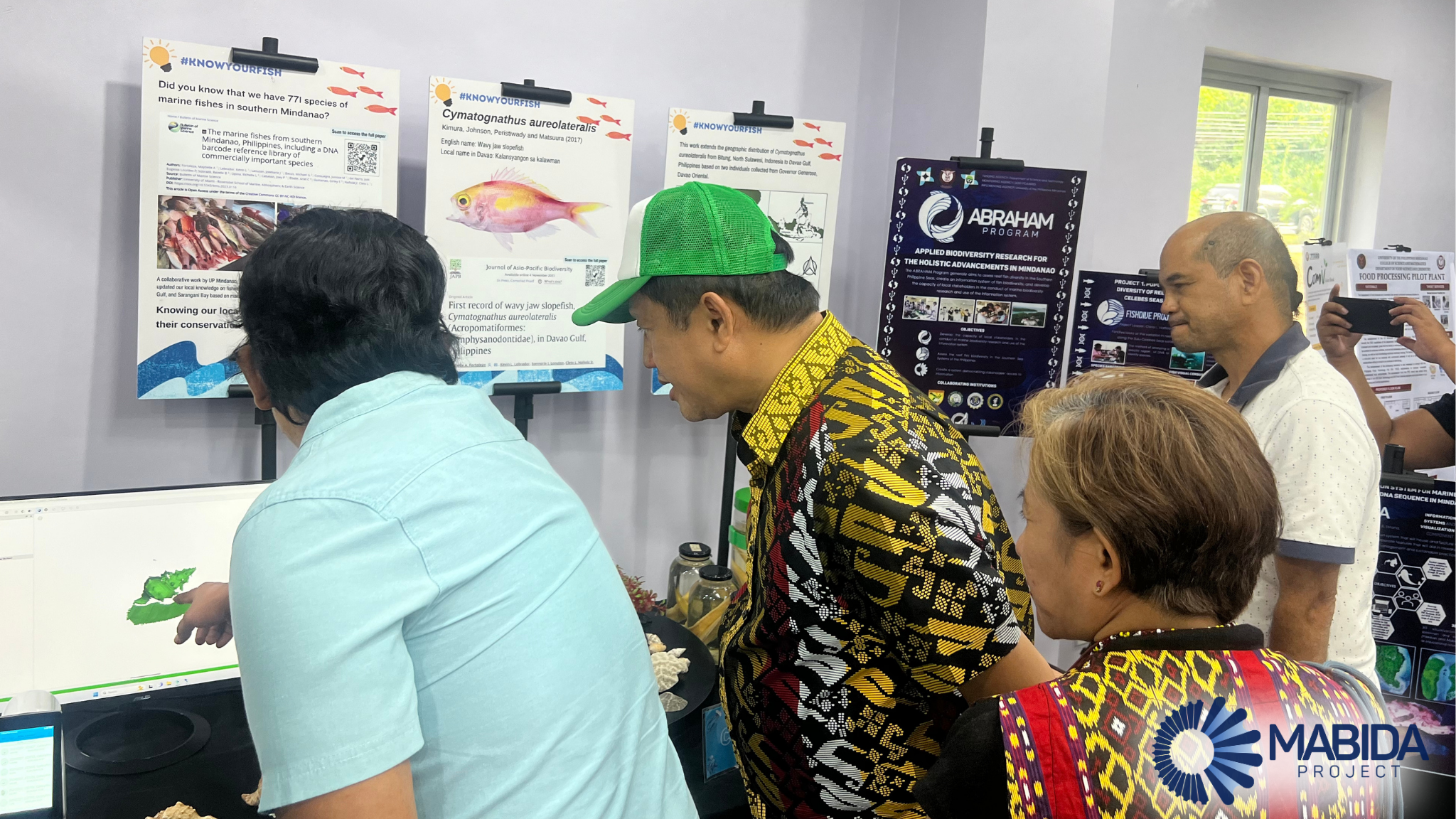
Kalimuhagan Knowledge Fair Exhibit: Celebrating Research Excellence
May 7, 2024
On May 7, 2024, the UP Mindanao Office of Research hosted the Kalimuhagan Knowledge Fair Exhibit, featuring a diverse range of research initiatives under the theme "UPMin Research: Transforming Insights into Impacts." The event showcased groundbreaking research projects aimed at driving innovation and benefiting communities. The exhibit was officially inaugurated with a ribbon-cutting ceremony led by University President Angelo Jimenez, marking his visit to the newly established Center for the Advancement of Research in Mindanao (CARIM). His presence added prestige to the occasion, emphasizing the university's commitment to advancing research that makes a real-world difference. The MABIDA Project participated in the event, presenting its state-of-the-art 3D scanning and 3D printing technology, showcasing its significant contributions to marine research. The project highlighted its advancements and impact, reinforcing its role in transforming research insights into practical applications and community benefits. The Kalimuhagan Knowledge Fair Exhibit brought together researchers and research groups from across the university, offering a platform to demonstrate their work and foster collaboration. The event underscored the importance of research in driving innovation and making meaningful impacts.
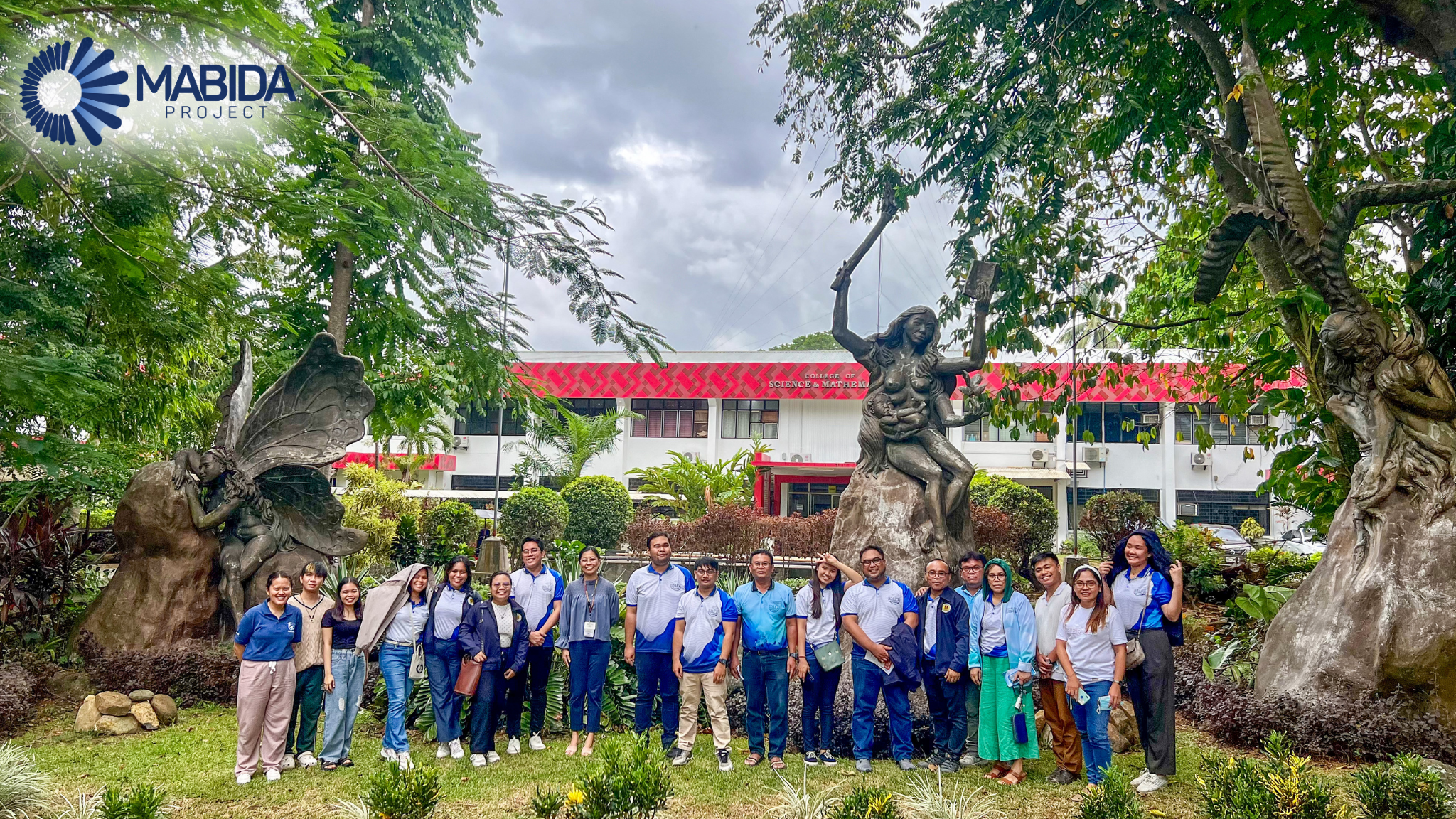
Building Bridges: MSU-Naawan Faculty Visits UP Mindanao Research Facilities
April 23, 2024
On April 23, 2024, faculty and staff from the School of Marine and Fisheries Technology of Mindanao State University (MSU)-Naawan embarked on a productive site visit to UP Mindanao’s laboratories and ongoing research projects. This visit highlighted collaborative efforts in advancing marine science research and technology in the region. One of the key projects explored during the visit was the Marine Biodiversity Database (MABIDA) Project. The MABIDA Project presented its cutting-edge unified information system, which serves as an open-access storage platform for marine biology researchers not only in Mindanao but around the globe. This comprehensive system offers an organized and accessible repository of vital marine data that supports scientists, educators, and decision-makers in their research and conservation efforts. In addition to learning about MABIDA’s digital resources, the MSU-Naawan team had a unique opportunity to engage with the project’s advanced 3D scanners and printers. These technologies play an essential role in enhancing the visualization and study of marine specimens, providing precise, 3D-printed models for research and educational purposes. This visit solidified ongoing relationships between Mindanao’s academic institutions, fostering a spirit of collaboration in marine research, and underscored the importance of sharing knowledge, tools, and innovations to address the growing challenges faced by our marine ecosystems.
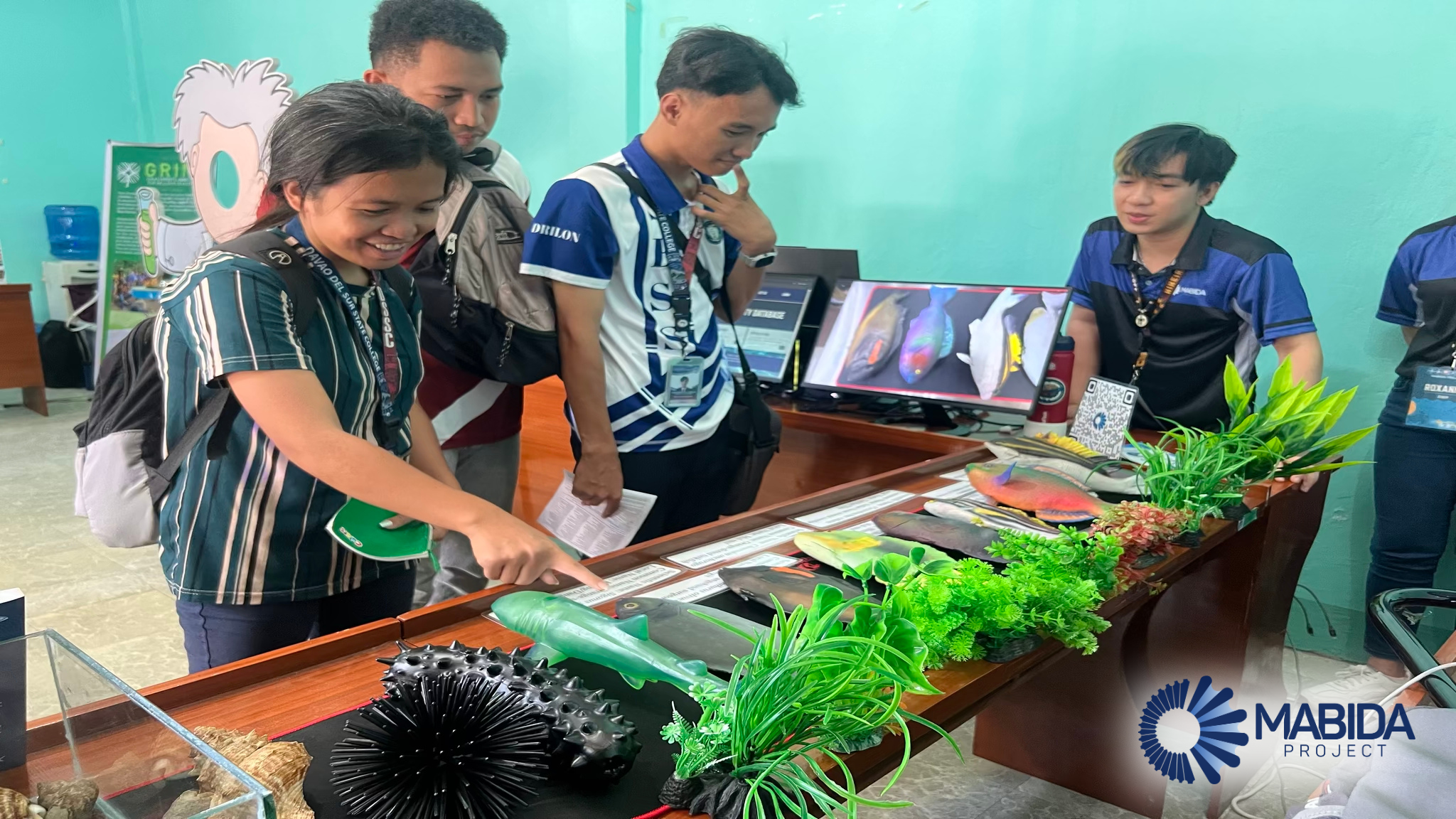
Breaking Barriers and Igniting Innovation at the Araw ng Sulop S&T Exhibit
April 22, 2024
On April 22, 2024, Sulop, Davao del Sur, hosted an inspiring event as the Araw ng Sulop S&T Exhibit showcased advancements in Science, Engineering, Technology, and Innovation (SETI). The MABIDA Project conducted a distinguished exhibit, presenting its cutting-edge 3D scanning and printing technology and offering visitors a chance to experience its remarkable capabilities firsthand. Attendees were given the unique opportunity to explore the transformative capabilities of MABIDA, which included interactive experiences with its comprehensive marine biodiversity database for fauna and flora in Mindanao. Visitors marveled at the detailed 3D visualizations of marine life, bringing to life the rich biodiversity of the region. The MABIDA website, described as a treasure trove of marine biodiversity data, offered participants insights into its powerful tools for research and conservation. The exhibit, organized by the Department of Science and Technology (DOST) PSTO Davao del Sur, was officially opened by Vice Mayor Willie Villegas, alongside local government officials from LGU Sulop and esteemed faculty members from Davao del Sur State College. Their collective presence underscored the crucial role that collaboration and innovation play in advancing science and technology within the local community. The event not only showcased technological advancements but also inspired future initiatives aimed at empowering researchers and conservationists in the preservation of Mindanao’s diverse marine ecosystems.
